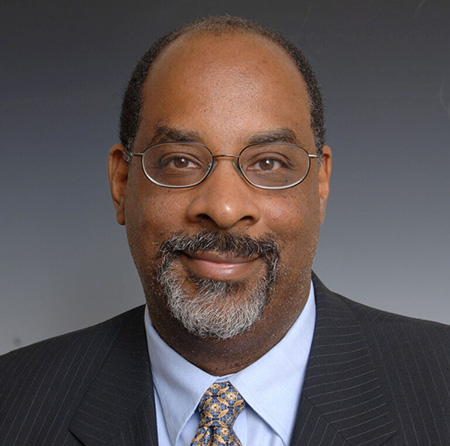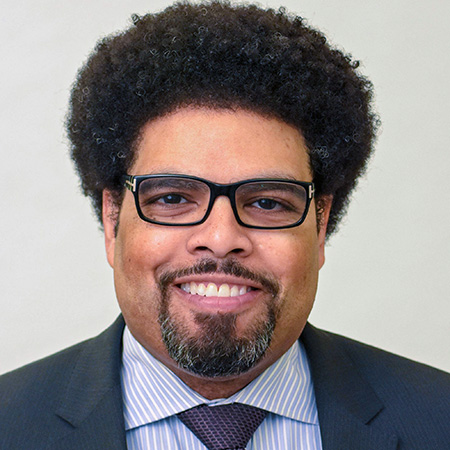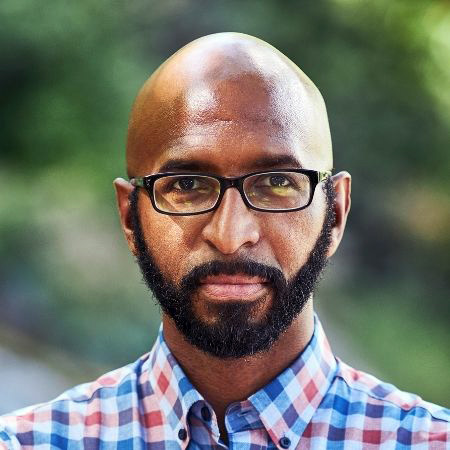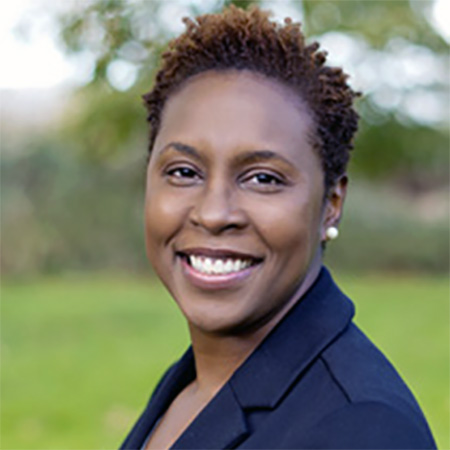
News

- This event has passed.
“Covid as a Portal” – The 2022 Warren Dennis Metro-Urban Lecture
March 5, 2022 @ 9:30 am - 1:00 pm
COVID as a Portal: Assessing COVID’s impact on Economics and Mental Health within Urban Communities
The COVID-19 pandemic has affected all of us. However, as the various studies (CDC Report 2022; National Cancer Institute Study 2021; Maritza Vasquez Reyes 2020) indicate, minorities have been disproportionately impacted by the pandemic. Using the COVID-19 pandemic as a portal – a entrance through which to critically examine something – this year’s Warren Dennis Lecture will seek to assess the impact of COVID-19 on the economic outcomes and mental health of residents within urban communities in the US.
 |
Dr. Joseph Graves, Jr. received his Ph.D. in Environmental, Evolutionary and Systematic Biology from Wayne State University in 1988. In 1994 he was elected a Fellow of the Council of the American Association for the Advancement of Science (AAAS.) In 2012, he was chosen as one of the “Sensational Sixty” commemorating 60 years of the NSF Graduate Research Fellowship Award. In 2017, he was listed as an “Outstanding Graduates” in Biology at Oberlin College; and was an “Innovator of the Year” in US Black Engineer Magazine. His research in the evolutionary genomics of adaptation shapes our understanding of biological aging and bacterial responses to nanomaterials. His book on nanomaterials is entitled: Principles and Applications of Antimicrobial Nanomaterials, (Amsterdam NE: Elsevier), 2021. His books on the biology of race are entitled: The Emperor’s New Clothes: Biological Theories of Race at the Millennium, Rutgers University Press, 2005 and The Race Myth: Why We Pretend Race Exists in America, Dutton Press, 2005; with Alan Goodman, Racism, Not Race: Answers to Frequently Asked Questions, Columbia University Press, 2021. Racism, Not Race was named by Kirkus Reviews as “One of the Best Non-Fiction 2021” and to its “Best Books About Being Black in America 2021”. Finally, his biopic work entitled, A Voice in the Wilderness: A Pioneering Biologist Explains How Evolution Can Help Us Solve Our Biggest Problems, (New York: Basic Books), is scheduled for publication in fall 2022. He leads programs addressing underrepresentation of minorities in science. He aids underserved youth in Greensboro via the YMCA chess program. He has also served on the Racial Reconciliation and Justice Commission, and COVID Vaccination Task Fore of the Episcopal Diocese of North Carolina. He also serves as the science advisor to the Chicago, New Brunswick, and Methodist of Ohio Theological Seminaries through the AAAS Dialogues of Science, Ethics, and Religion (DoSER) program. |
 |
Dr. Darrick Hamilton is a university professor, Henry Cohen Professor of Economics and Urban Policy, and founding director of the Institute on Race, Power and Political Economy at The New School. Professor Hamilton examines social stratification and political economy in order to move policy and practice in fundamentally new directions that promote economic inclusion, social equity, and civic engagement. Considered one of the nation’s foremost public intellectuals, Darrick has been profiled in the New York Times, Mother Jones, and the Wall Street Journal. In 2017, he was featured in Politico’s 50 Ideas Shaping American Politics and the People Behind Them issue. In 2020, Professor Hamilton was named in the Marguerite Casey Foundation and the Group Health Foundation’s inaugural class of Freedom Scholars. Professor Hamilton has been involved in crafting policy proposals that have garnered media attention and inspired legislative proposals at the federal, state, and local levels, including baby bonds, guaranteed income, and a federal job guarantee. In 2020, Darrick served as a member of the economic committee of the Biden-Sanders Unity Task Force. He has testified before several Senate and House committees, including the Joint Economic Committee and the Senate Banking Committee. Appointed by the mayor, he is currently serving as a commissioner on the New York City Racial Justice Charter Revision Commission. |
 |
Demond Drummer, Managing Director for Equitable Economy, leads PolicyLink’s work to redesign our economy to work for all—especially the more than 100 million people who are shut out of our country’s prosperity. A proven strategist and innovator with a track record of developing solutions, building teams, and delivering results, Demond’s leadership—in policy development, program design, technology and innovation—has been recognized by the Obama White House, Code for America, and the Aspen Institute. Most recently, he was the co-founder and executive director of New Consensus. There he worked to develop and promote the Green New Deal, a transformative vision that shifted US public discourse on climate action. Prior to New Consensus, Demond distinguished himself as a civic innovator on the South Side of Chicago. With a body of work spanning youth leadership development, land use planning, and community technology, Demond responded to the aspirations of his community by developing innovative programs, building people power, and delivering policy change. Demond earned a BA in economics from Morehouse College and an MA from the University of Chicago Divinity School, where he studied religion and public life. Demond is deeply committed to his adopted hometown of Chicago. He is a co-founder and board member of the Resident Association of Greater Englewood (R.A.G.E.) and serves as a board member of South Shore Works. Demond lives in Chicago’s South Shore neighborhood with his wife and two children. In his spare time Demond enjoys biking, live music of any kind, and speculative fiction. |
 |
Gihane Jérémie-Brink, PhD is an Assistant Professor in the Graduate Program in Clinical and Counseling Psychology within the Department of Psychology at The William Paterson University. She studies the psychological well-being of Black emerging adults, women, and couples and families. Her research on these topics explores racial and ethnic socialization, coping strategies, and critical consciousness as protective factors. Dr. Jérémie-Brink is also the Co-Principal Investigator and Director of the WELL Program at New Brunswick Theological Seminary, a 5-year grant program that promotes the mental, physical, and spiritual well-being of Black and Latino pastors and community leaders. She serves in leadership for APA’s (American Psychological Association) Division 43 (Society for Couple and Family Psychology), Division 17 (Society of Counseling Psychology), and Division 35 (Society for the Psychology of Women). Dr. Jérémie-Brink is also an Editorial Board Member for the journal Couple and Family Psychology: Research and Practice. She was a Clinical Scholar Postdoctoral Fellow at The Family Institute at Northwestern University, completing advanced training and research in couple and family therapy. She received her Doctor of Philosophy in Counseling Psychology and Master of Arts degree in Community Counseling from Loyola University Chicago. Her awards include a predoctoral APA Minority Fellowship, an APA Minority Fellow Health Policy Internship at SAMHSA (Substance Abuse Mental Health Services Administration), and Jeffrey S. Tanaka Dissertation Award from the APA Committee on Ethnic Minority Affairs (CEMA). |
Everyone is welcome to attend this event. Registration is required. Register here: https://us06web.zoom.us/webinar/register/WN_dVDO_wP5SJak4E3Ah4uFPA